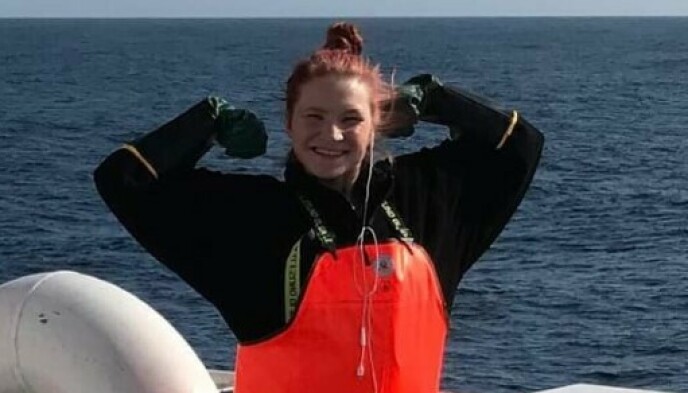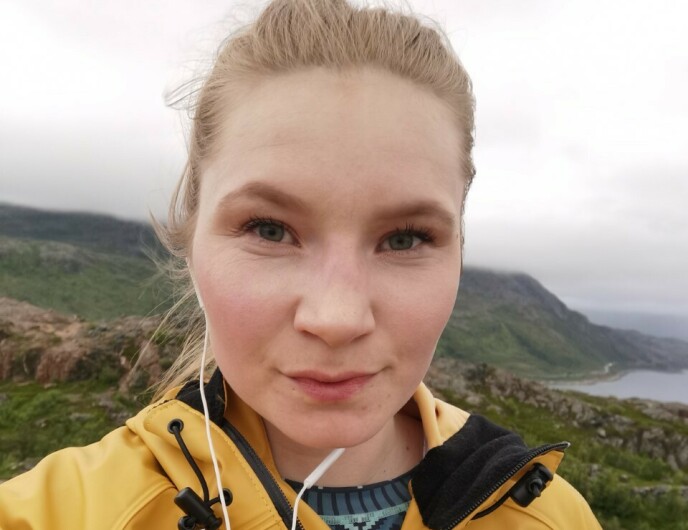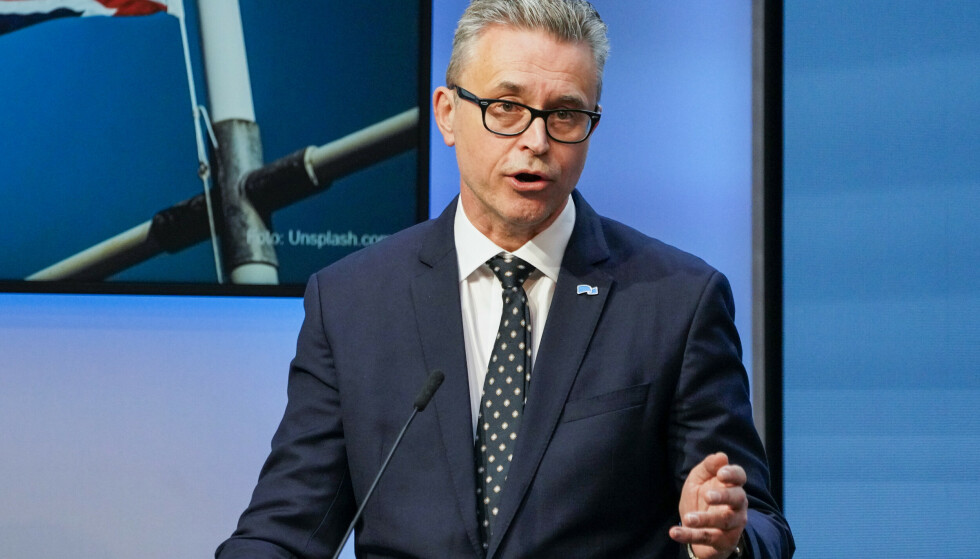When Susan Mortensen of Tromsø was 19 years old, she chose to become a fisherman. Today she is 24 years old and can safely say that she has very mixed feelings about the choice of profession.
– As a woman who works in the fishing industry, you feel totally lonely. It didn’t take long before I realized that it’s socially acceptable to call women “whores” and “reformers” of the environment, as Susan tells Børsen’s financial website Dagbladet.
Susan says she herself has been subjected to such insults since she started working as a fisherman five years ago.
She believes that the problem is not only with those who describe her as very ugly, but “everyone” accepting that one does.
– Nobody says anything
Many times superiors and colleagues have said ugly things to me, and many of them have stood and watched. No one said “Hey! It’s not good to say”, and it makes you feel incredibly lonely.

Norway opened: Hans Olaf left
The 24-year-old claims that she tried to take problems to the highest level in the system.
– I have informed the shipping companies and the unions, but things have not changed. There are tall men, with high positions and a lot of money, who try to sweep the exclamation under the rug. as soon as possible.
Susan previously wrote a column in the language NRK It takes a hard line against the male-dominated industry. After she appeared in the media, and talked about the treatment she received, she claimed that a few of her former colleagues called her and apologized for her.
– Yes, there are few who called and said that they were sorry for the way they treated me, or let others treat me.

Show more
stop – again
After several years in the industry, Susan decided to try something else, because she could no longer stand the heat.
– When the epidemic broke out in 2020, I stopped hunting. I wanted to find something else to do, and I became a Cuban farmer. But it didn’t take more than a year before I was back as a hunter, I love working with this one.
Was it a hard choice – back to the hunting community?
– Both yes and no. There were a few damned ones in me, who said they shouldn’t win. So now I’m back, Susan says over the phone, on her way to work.

Show more
She further says that she fears that the spotlight on women and equality in the fishing environment will be lost, if not handled properly.
It may be something that is now looked at, but suddenly forgotten, and everything continues as “normal.” I really hope that doesn’t happen.
Fiskarlaget: – Very dangerous
Fiskarlaget leader Kjell Ingebrigtsen, Dagbladet says they take the terms Susan described about the industry to the media very seriously.
– Her story of harassment shows that we still have a long way to go in the fishing industry, and that unacceptable actions and situations have not been pursued in the right way. No one should bear such loads as I did. Bullying and harassment should not be accepted, neither in the fishing industry nor anywhere else in working life, Ingebrigtsen tells Dagbladet.
He says they all have the responsibility to scold and stand by each other.
At the same time, with leadership positions, we must be aware of our responsibility and clearly state that we cannot accept such rude cross-border behavior.
How can we prevent this from happening in the future?
– Perhaps it concerns more things, it will be necessary to change the situation and a sharp increase in consciousness among shipowners and masters. It is also likely that better reporting procedures will be needed in the industry, and there may be a possibility that this will be taken into account more explicitly in training. This is clearly something we need to work on more comprehensively in the future.
– These are responsible
Ingebrigtsen explains that the responsibility for changing attitudes in the fishing industry lies with the management of shipping companies and the skipper on the boats, but also with the fisherman.
In addition, Ingebrigtsen believes that organizations in the industry should take the lead, and this includes both employer and employee organizations.
– Have you received many complaints/notifications from women about incidents similar to Fiskarlaget?
The Norwegian Fishermen’s Association has largely received complaints or notifications from fishermen about similar incidents.
– How many women are there in you?
– The proportion of women among the Norwegian fishermen is approximately four percent, and the proportion is approximately equal among our members.

Small planes crashed into a residential area
– not permanent
– She says she reported being harassed in the workplace to Fiscarlaget, is this true?
– We don’t realize that Mortensen has raised this directly with Fiskarlaget before, but if it was, Mortensen or another fisherman contacted Fiskarlaget and we didn’t follow up on these inquiries in an appropriate manner, it’s clearly not permanent, says Ingebrigtsen.
He says Fiskarlaget is now working on new procedures for safe reporting.
On the part of Fiskarlaget, our Secretary General met with Mortensen and union last week, and received several specific suggestions that we are now in the process of pursuing.

Talk about hate
– unacceptable
Recently resigned Minister of Fisheries and Seafood Dagbladet told Odd Emil Ingebrigtsen (H) about Susan’s condition and what she went through in her working life. reacts vigorously.
– This is totally unacceptable That Susan must encounter such attitudes and behaviors in the workplace. These are situations we have to live with, and I would like to commend Susan for addressing this important topic, Ingbrigtsen tells Dagbladet.
Who should make changes so that Susan is not provoked in this way one day?
We all have a responsibility to bring such situations to life, and it is something that every individual should take seriously to contribute to a good and safe work environment. But there is also an additional heavy responsibility that falls on managers on a fishing boat, just as in any other company. I would strongly encourage the industry to work with positions at all levels, and to recruit more women into fisheries, trade unions and fish selling teams.

Raquel’s Double Life (24) in Closed Cult
– Don’t accept it
Ingebrigtsen makes it clear that one should not accept such behavior, regardless of whether the culture is in the workplace, or whether it pertains to individuals.
We should encourage organizations to create attitudes, in particular targeting supervisors and reminding them of their responsibility for the environment in the workplace.

Show more
Ingebrigtsen further explains that the Ministry of Trade and Industry presented a strategy in August to improve equity in fisheries.
Our strategy is to contribute to increasing the employment of women and to identify and remove obstacles, so that women and men have equal opportunities to establish themselves in the profession.
We are following this up, among other things, by allocating $1.5 million to promote gender equality in fisheries. The money, among other things, can go into the work of creating attitudes against sexual harassment and sexist behaviour, Ingbergsen says.
He further explains that the amount will also strengthen women’s networks that educate and protect the interests of women as fishermen or fishermen in the future, as well as measures related to cultural outreach and work that creates attitudes within the fisheries and seafood sector.

“Organizer. Social media geek. General communicator. Bacon scholar. Proud pop culture trailblazer.”


